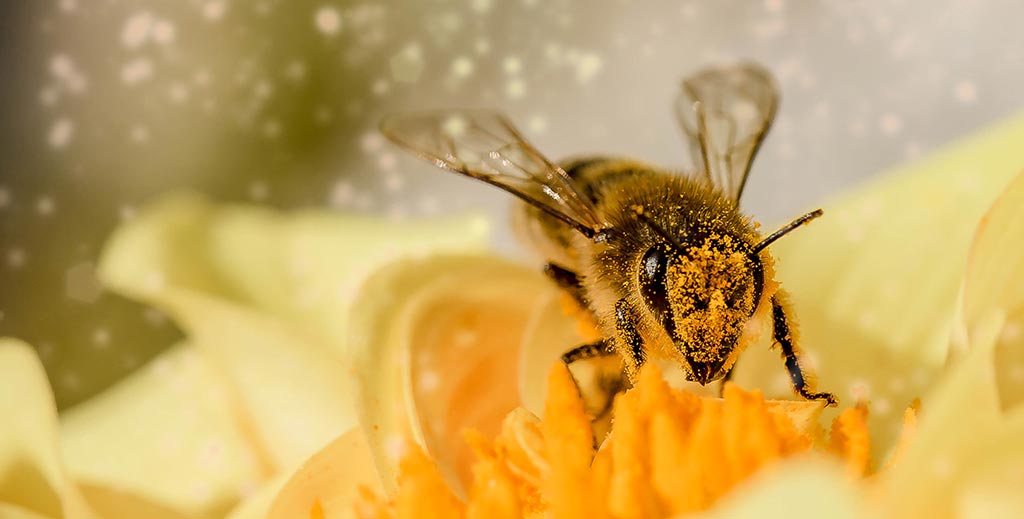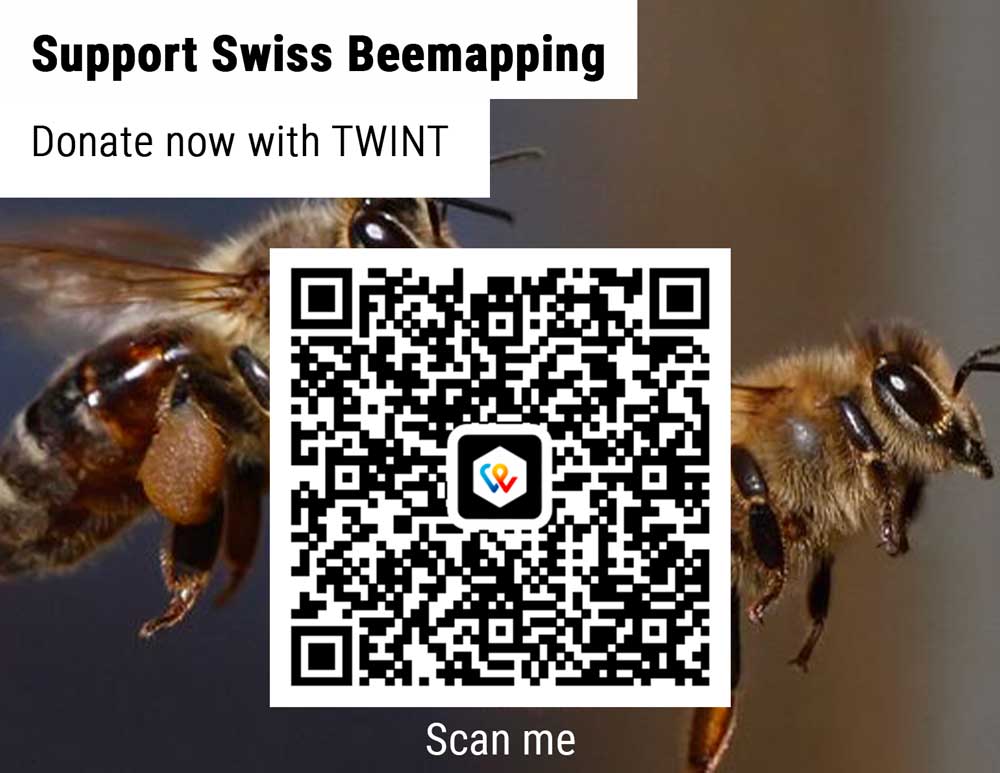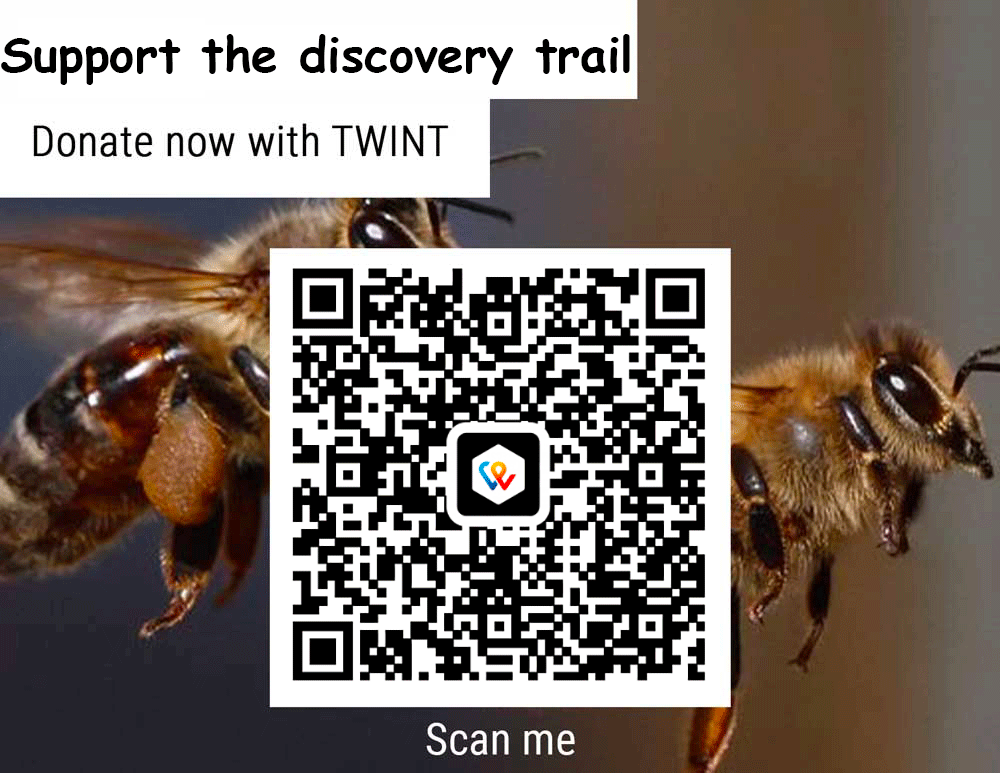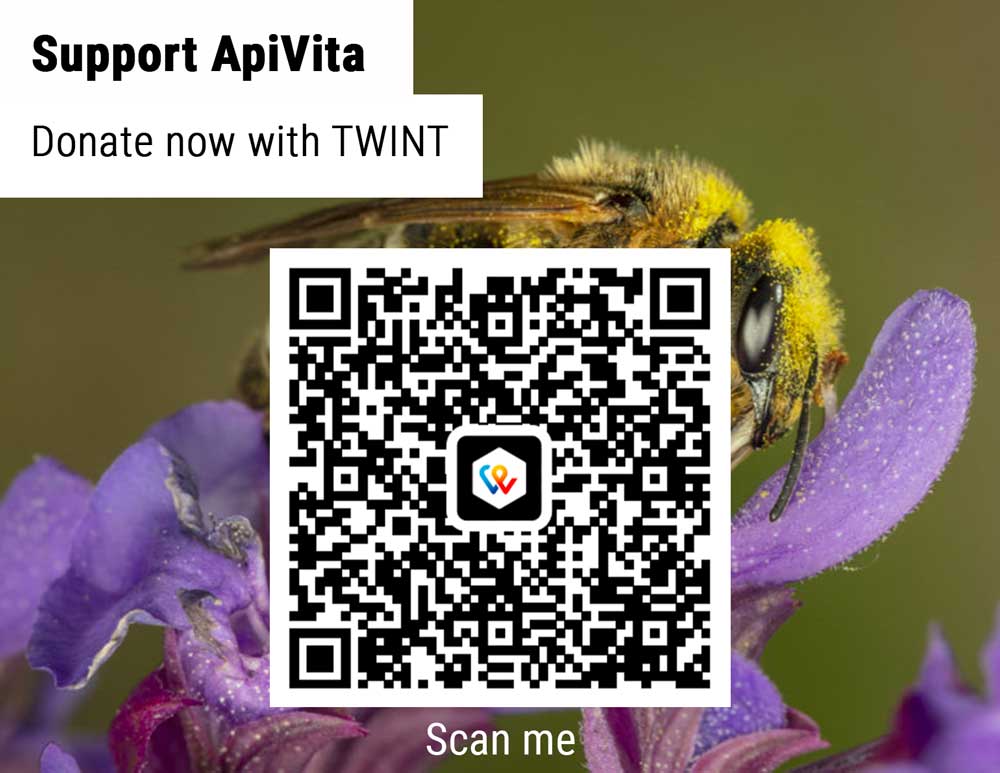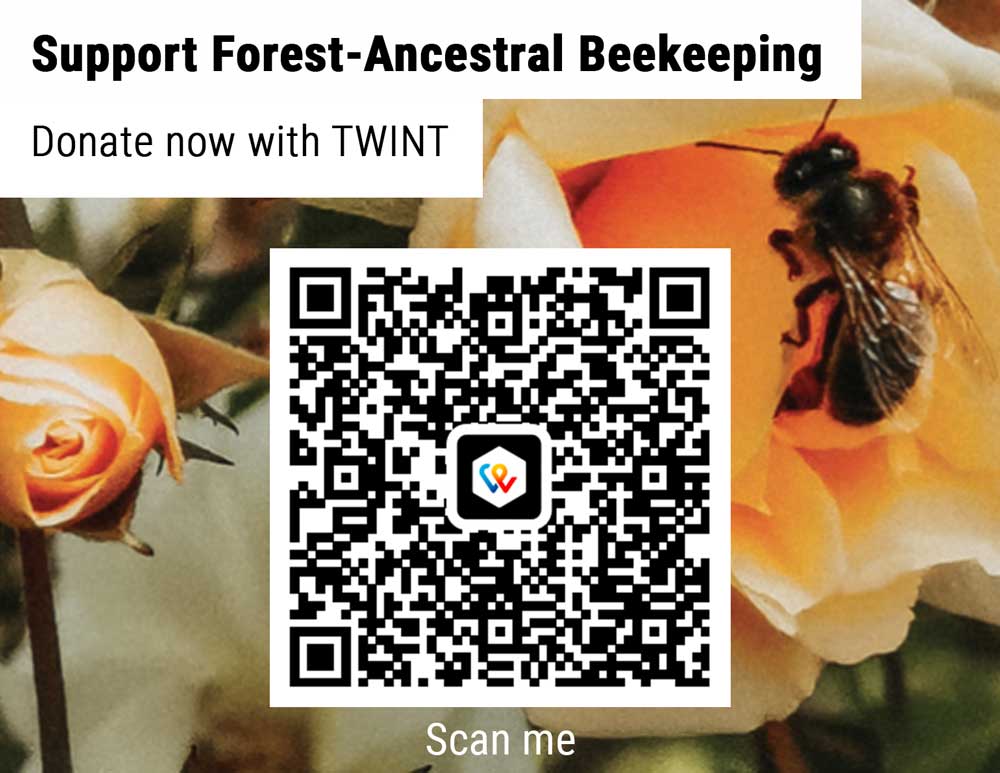Projects for a bee life worth living
Swiss BeeMapping
According to the authorities, the honey bee is extinct in the wild in Switzerland. However, FREETHEBEES has been observing dozens of wild colonies for many years. Scientific studies indicate their existence in the surrounding countries.
With this very important project FREETHEBEES intends to provide scientific evidence for the existence of wild honey bee colonies in Switzerland.
Ecosocial discovery trail in Vaulruz FR
=> The trail has been open to the public since 1 October 2023
The honey bee, a forest insect to be rediscovered
FreeTheBees has carried out a number of projects for honeybees in 1627 Vaulruz FR – 3 cavities in living trees, 1 habitat for the bee and the scimitus, a predator of varroa mites, planting of honeybees, creation of a flowery meadow, etc. – over the last 3 years. It is now time to show them off and make them available to the public.
EARLY DETECTION OF BROOD DISEASES BY TRAINED DOGS
More precisely, gently, efficiently and cost-effectively, the indicator dog, thanks to its sense of smell, detects the dreaded brood diseases American foulbrood and European sourbrood in the hive at the earliest early stages. Routine opening of hives and disturbance of colonies is no longer necessary. For the first time, wild bee colonies can also be tested for brood disease in inaccessible places.
DISTRIBUTION OF TREE CAVITY HABITATS
Tree cavities are extremely important and rare ecological elements in Swiss nature. They serve not only as the original and natural habitat of the honeybee, but also as a refuge, breeding, hibernation or feeding site for a multitude of species and species communities. FREETHEBEES has developed unique expertise in the field of tree cavities. Thanks to our experience, we are able to create and disseminate tree hollows through this highly innovative project.
COLLABORATION EXPERT REPORT TO CLARIFY THE STATUS OF THE HONEY BEE
What FREETHEBEES has been advocating to the public since 2013 is clarified officially and scientifically for the first time: the honey bee is most likely still a wild animal that is also used in agriculture. As a wild animal, it may and should be protected and promoted in nature. As a farm animal, it should be kept in a sustainable, responsible and species-appropriate manner.
NEW HONEY ECO LABEL APIVITA
Together with the top-class partner Delinat, a pilot project is currently running in three professional apiaries (2 in Italy, 1 in Spain). Along the FREETHEBEES beekeeping methodology and according to the concept of diversified mixed beekeeping, honey is to be produced extensively with 80% of the colonies. The beekeepers commit themselves to keep 20% of their colonies close to nature.
THE REINTRODUCTION AND DIFFUSION OF FOREST-ANCESTRAL BEEKEEPING
FREETHEBEES has brought the traditional Zeidlerei from Poland back to Switzerland in 2014 and from here spread to Germany, England, France and Belgium. With the project FREETHEBEES has even made a name for itself as far as California. Besides the European Forest Institute (EFI) in Freiburg DE, the Swiss Federal Institute for Forest, Snow and Landscape Research (WSL) in Birmensdorf CH was also interested in our activities. We not only preserve a fascinating cultural craft, but also increase the biodiversity in the economically used forest.
ACTION PLAN STRATEGY BIODIVERSITY SWITZERLAND
In 2013, at the same time as FREETHEBEES was founded, the Federal Office for the Environment invited all stakeholders to work together on the action plan for the Swiss Biodiversity Strategy. There was no trace of the official honey bee representatives. FREETHEBEES took this as an opportunity to represent the interests of the honey bee as a wild and forest animal in the action plan as a newly founded and then still small organization.
POLITICAL FORAYS
FREETHEBEES is actively involved in political processes where necessary and sensible. The current situation cannot be improved without politics. Legal errors must be corrected and incentive systems (beekeepers, landowners, consumers, etc.) improved.
Previously initiated interpellations:
Honeybee survivability, Beat Jans
Lack of transparency in bee treatment products, Dominique de Buman
Note the strong content-related and technical distortions of the answers!

